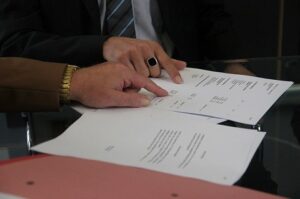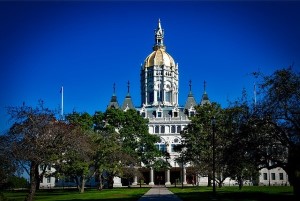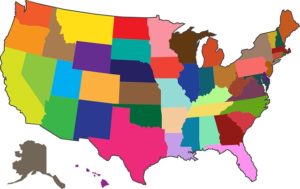Housing & Mortgage Fraud
 Among the government’s largest fraud recoveries are those relating to mortgage fraud following the financial crises of 2008.
Among the government’s largest fraud recoveries are those relating to mortgage fraud following the financial crises of 2008.
Some of these recoveries are the result of a mortgage fraud whistleblower coming forward.
Although mortgage fraud takes many forms, the government has most forcefully pursued conduct related to:
- Originating and underwriting residential mortgage loans that never should have been made because of the weak underlying financial condition of the borrower, and
- Defrauding investors in structured financial products known as Residential Mortgage-Backed Securities (RMBS) and Collateralized Debt Obligations (CDOs), which were based on these faulty underlying loans.
The government aggressively targets this misconduct because it has far-reaching implications. In fact, mortgage fraud played a major role in the financial meltdown from which the economy has still not fully recovered.
Among the fraudsters are many of the country’s top banks and financial institutions, from whom the government has recovered eye-popping settlements in the nine and ten-figure range.
The “Billion Dollar Mortgage Fraud Club” includes:
- Bank of America,
- JP Morgan Chase,
- Citigroup,
- Wells Fargo,
- Ally Financial,
- Deutsche Bank,
- Morgan Stanley,
- Goldman Sachs, and
- Standard & Poor’s.
Filing a Mortgage Fraud Whistleblower Claim Under the False Claims Act
Many government enforcement actions have involved mortgages guaranteed or insured by the federal government through the Department of Housing and Urban Development’s (HUD) Federal Housing Administration (FHA).
Under these circumstances, the fraudulent mortgage activity can constitute violation of the False Claims Act because the fraud results in direct financial loss to the federal government.
Examples of mortgage fraud include:
- Failing to satisfy HUD underwriting requirements
- Falsely certifying loans as eligible for FHA insurance
- Misrepresentations of the quality of the underlying loans
- Failing to perform adequate due diligence of the underlying loans
- Overstating the borrower’s income
- Misrepresenting the borrower’s employment history
- Inflating property values
It is not surprising that many of the government’s largest mortgage fraud settlements have been grounded in violations of the False Claims Act.
Other Mortgage Fraud Laws
Additionally, fraudulent mortgage activity can violate the Financial Institutions Reform, Recovery, and Enforcement Act of 1989 (FIRREA), enacted in the wake of the savings loan crisis to allow the government to go after various financial frauds.
Mortgage fraud, particularly as it relates to the sale of RMBS and CDOs, can also violate the Dodd-Frank Act, which covers various securities law violations.
Each of these laws financially incentivizes industry insiders to provide the government with original information leading to a government recovery. The government has gone out of its way to encourage mortgage fraud whistleblowers to step forward under the whistleblower rewards programs of these statutes. In connection with its highly-touted Financial Fraud Enforcement Task Force, the government has noted it is “particularly interested in information from corporate insiders,” recognizing that “[f]raud can be hard to uncover without help from whistleblowers who were corporate insiders.”
A central component of this government outreach has been its emphasis on the “substantial financial rewards” that may be available to whistleblowers under these government programs.
Contact a Mortgage Fraud Whistleblower Lawyer
If you would like more information about mortgage fraud whistleblower laws, or believe you have information about mortgage fraud, please contact us to request a consultation. Our whistleblower lawyers can determine if you have a valid claim.




